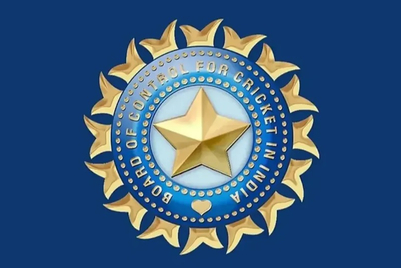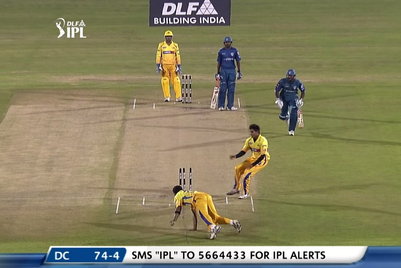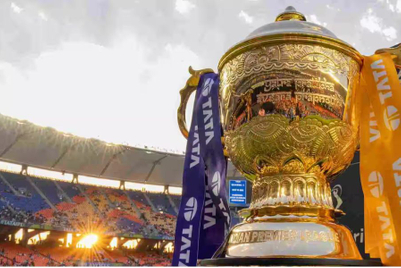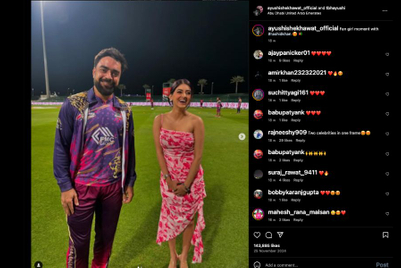
Last week, the BCCI put out a one-line statement, on Vivo’s exit as the title sponsor of the Indian Premier League (IPL). “The Board of Control for Cricket in India (BCCI) and Vivo Mobile India have decided to suspend their partnership for Indian Premier League in 2020,” the press release stated.
The company, Vivo Mobile, on its part, stated that the association is being paused. “The Board of Control for Cricket in India (BCCI) and Vivo Mobile India Pvt Ltd have mutually decided to pause their partnership for the 2020 season of Indian Premier League,” it stated.
Vivo won the IPL title sponsorship rights for five years from 2018 to 2022 for a reported sum of Rs 2,190 crore, approximately Rs 440 crore per annum. Much has been written about that. So I won’t dwell on that or its commercial repercussions or nationalistic manifestations.
But, as a student of law, what I found incredibly interesting, and noteworthy, was the usage of words like suspend and pause to describe the supposedly temporary exit of Vivo from the sponsorship. One thing is certain that the BCCI – Vivo agreement inked in 2018 did not provide for the contract to be either ‘suspended’ or ‘paused’. No agreement of any standing ever provides for or allows a hiatus in the enforcement of the contract during its agreed tenure. So, how both parties arrived at this convenient arrangement is indeed worth a legal moot! Methinks that the actual escape clause was happily available in a very important nomenclature that the contract must have had: mutual agreement.
Most times, sharp corporate lawyers try to avoid any mention or inclusion of ‘mutual agreement’ in contracts till it is absolutely essential for the performance of the agreement. Which is why it is not the affirmative mention of ‘mutual agreement’ but the negative statement of it as ‘except by mutual agreement’ that is incorporated in most agreements. For example, the capital structure of a company cannot be changed by any one of the partners ‘except by mutual agreement’. I do not want to get into legalese but the common understanding is that if two parties to an agreement are already at loggerheads, then getting them into any form of ‘mutual agreement’ is well neigh impossible, and therefore, in reality almost tantamount to wishful thinking. But in the BCCI – Vivo agreement, their mutual assent to the suspension/pause of the agreement seems to have freed both parties from performance under the contract by ‘mutual agreement’.
Lawyers, and students of law, have much to learn from the BCCI – Vivo imbroglio.
1. Perhaps future contracts should now find a way to provide for exceptional circumstances, earlier never envisaged. ‘Government action’ is one of them. Technically, ‘government action’ caused by the banning of Chinese apps became a precursor to the sentiment and situation created in the country that perhaps made it difficult (also undesirable) for Vivo to continue to do needful performance under the agreement with the BCCI. Again, I am not going to argue that the ‘government action’ was not directly attributable to Vivo’s performance, but was nevertheless a key factor limiting its continued desire to be the title sponsor of the IPL.
I bring up this issue of ‘government action’ because in a related matter of the IPL, there was much discussion if the BCCI was covered under insurance for claims because of the lockdown ordered by the government on which it had no control, and which was responsible for the initial postponement of the tournament, leaving the BCCI exposed in many of its contracts, including with its broadcaster, Star TV.
‘Government action’ is therefore a contingency that lawyers will have to seriously look to cover in contracts, going forward. Similarly, ‘national sentiment’ is becoming an increasingly important factor in the running of businesses. If the Confederation of All India Traders (CAIT) and the Swadeshi Jagran Manch had not raised a hue and cry about Vivo’s continued association with the IPL, this parting of ways would not have been necessitated. Lawyers will need to figure out how such inanimate drivers have to be factored into the writing of contracts. If that is even doable. There are surely those who may think these are theoretical semantics, but the reality is if the BCCI and Vivo were not predisposed to a peaceful settlement of the current sponsorship issue, frankly neither of them had an escape clause in the agreement between them. So, ‘mutual agreement’ has been the saving grace, as referred to above, but in most cases ‘mutual agreement’ is hardly something you can count on.
2. Now to the bit about ‘suspend’ or ‘pause’. As I said before, surely no such provisions actually exist in the contract. Thankfully, neither party is litigatively inclined, otherwise suspending or pausing the contract would not have been possible without one or the other party seeking redressal and relief in a court of law. Lawyers will have to take note that such an eventuality needs to be provided for perhaps in the future.
3. Would ‘force majeure’ be applicable to the current situation? My opinion is that force majeure does not cover either government action or nationalist sentiment or any similar situation. By definition force majeure as per Black’s Law Dictionary, is “an event or effect that can be neither anticipated nor controlled. It is a contractual provision allocating the risk of loss if performance becomes impossible or impracticable, especially as a result of an event that the parties could not have anticipated or controlled.” While force majeure has neither been defined nor specifically dealt with, in Indian statutes, some reference can be found in Section 32 of the Indian Contract Act, 1872 which envisages that if a contract is contingent on the happening of an event which event becomes impossible, then the contract becomes void. From a contractual perspective, a force majeure clause provides temporary reprieve to a party from performing its obligations under a contract upon occurrence of a force majeure event. In the BCCI – Vivo temporary parting (or so one has been led to believe), there is no real event, unless the Galwan Valley killing of 20 Indian soldiers is treated as a trigger event. But Vivo or BCCI have nothing directly to do with it and in law, such a far removed event would be difficult to justify as a force majeure in a court of law. Therefore, definition of contingent events allowing the invoking of force majeure will be a new challenge for lawyers.
4. If any, Vivo could have asked for an exit on two valid grounds, if it did actually want to exit the IPL contract against the wishes of the BCCI. The postponement of the event from its earlier calendarised dates in April-May to now September – October / November could be a valid ground for claiming non-performance. Also, the moving of the event to outside India would be an equally important reason to justify pulling out from the title sponsorship. Both are tangible reasons. Performance and non-performance are clearly definable. Also, potential loss from the change is again estimatable. However, one is not privy to what the actual contract says as it may actually provide BCCI the latitude to determine and change both of these performance deliverables.
The BCCI has been going through a rough phase. Its insurance policy not covering the pandemic as a potential cause for loss of revenues created quite a media debate. Also, its possible situation with its broadcaster on the force majeure of the pandemic and the lockdown causing postponement, even cancellation of the IPL in 2020, again raised much heat and dust. The BCCI has gotten out of the Vivo arrangement also because of its monopolistic position. If the BCCI were not to be in a commanding position in its domain and authority, its legal position on many recent issues would be largely indefensible.
Meanwhile, to all lawyers who get squeamish about ‘mutual agreement’, here is a great example of how a difficult provision can actually become a deal saver!
(Carol Goyal is a Mumbai based writer. She is a lawyer by training and is interested in both cricket and all its glorious twists and turns.)


.jpg&h=334&w=500&q=100&v=20250320&c=1)
.jpg&h=334&w=500&q=100&v=20250320&c=1)

.jpg&h=334&w=500&q=100&v=20250320&c=1)


.jpg&h=334&w=500&q=100&v=20250320&c=1)


.jpg&h=334&w=500&q=100&v=20250320&c=1)





.jpg&h=268&w=401&q=100&v=20250320&c=1)


